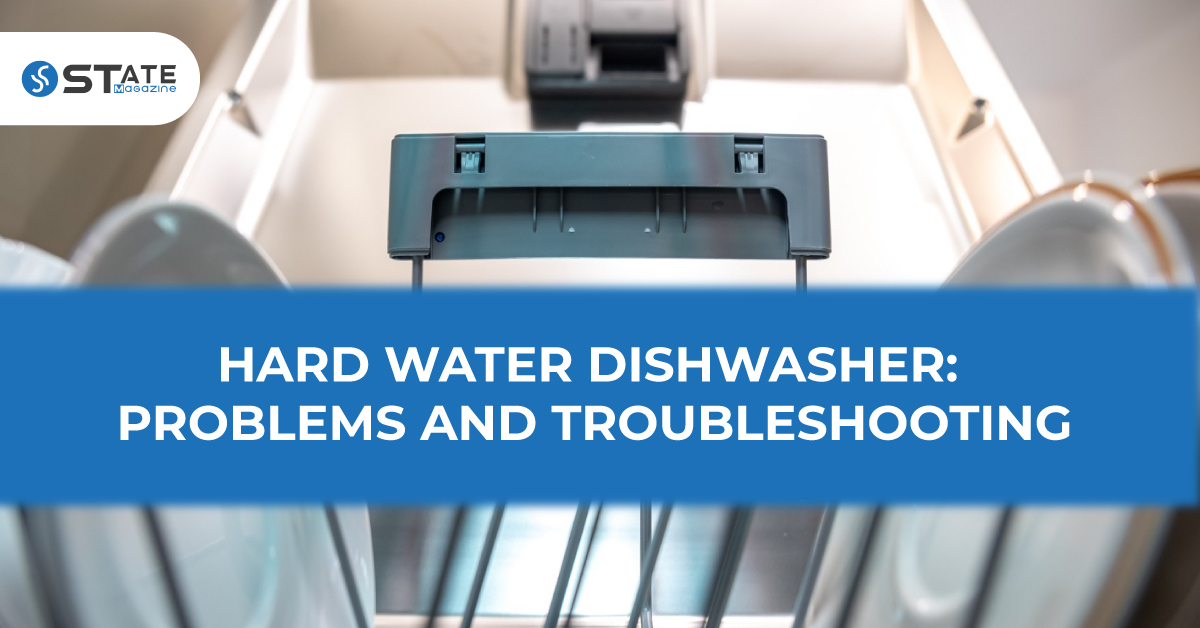If you are looking how to deal with a hard water dishwasher, then here are some easy remedies to get rid of it. Even though hard water might not be harmful for consumption, it is inconvenient to find your dishes half-cleaned with white residues building up inside the dishwasher and pipes. Since many regions have hard water, millions of people deal with this problem every day. Continuation of using hard water might even cause your dishwasher to fail, and therefore, knowing how to overcome this problem comes in handy.
What is Hard Water?
Contents
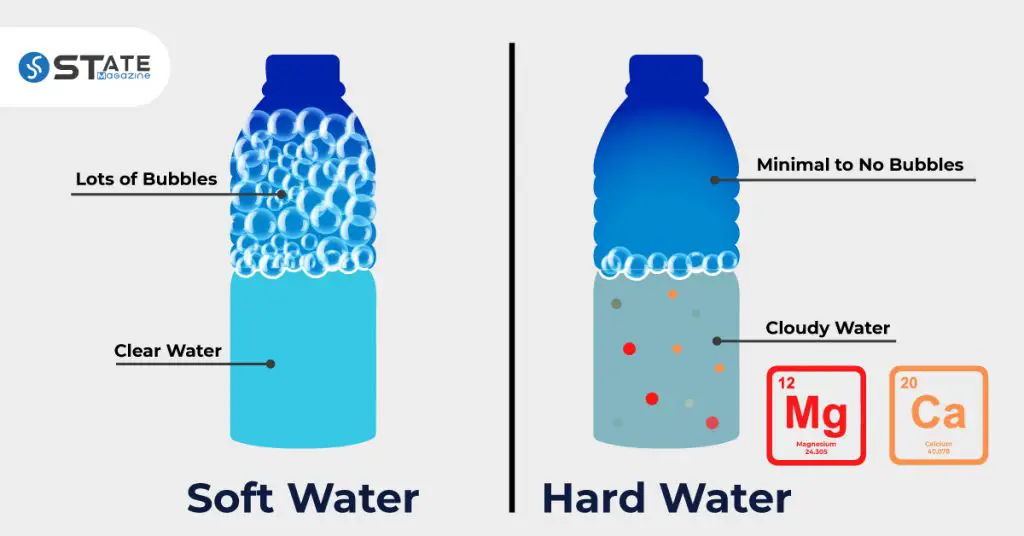
Hard water contains excess minerals such as Calcium and Magnesium, which then leave a chalky residue on water containers and vessels. The hardness of water depends on the amount of these minerals dissolved. Both tap water and well water can be hard, depending on the region. Although hard water may not be harmful to health, it can make your appliances and water pipes clogged with residues. Another major disadvantage in the kitchen is that hard water stains dishwashers.
Here are some of the most common issues that might occur in dishwashers due to hard water. Knowing how to overcome them is also necessary as you might not be able to get rid of hard water reaching you.
Problem: Water Spots or Cloudy Dishes
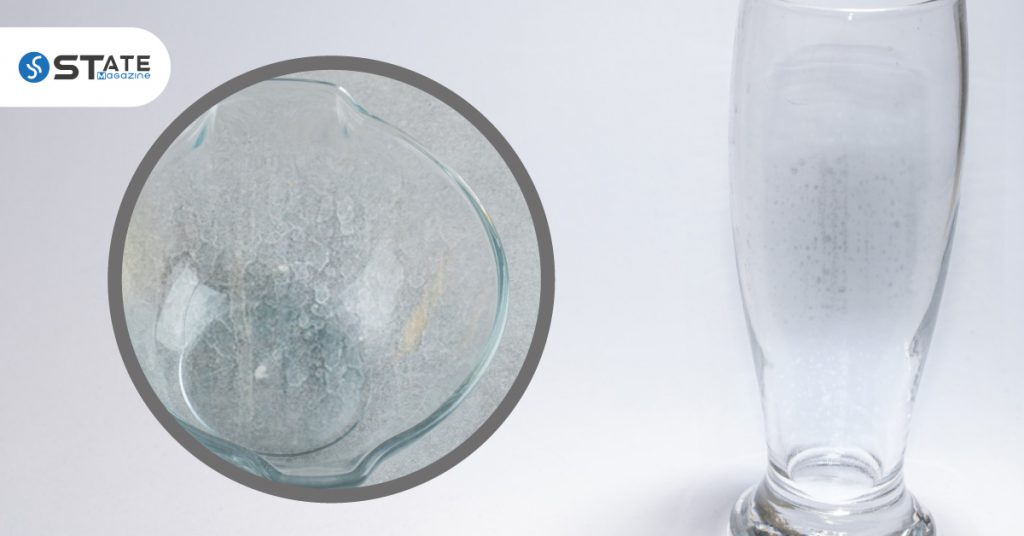
Even though your dishwater cleans your dishes and plates well, sometimes, there might be chalky white spots coating your plates. This might be seen on clear glass utensils as they would not have their shiny, sparkling appearance. This cloudiness can leave your dishes dull and unappealing even though they have been washed and cleaned properly.
Solution: Rinse Aid
If there are only white spots left and the dishes are not fully coated, then the hard water condition is at a manageable level. If there is a rinse aid dispenser in your dishwasher, keep it filled always. If there isn’t, then splash some rinse aid or white vinegar for every wash.
Problem: Dishes Oily and not Cleaning Properly
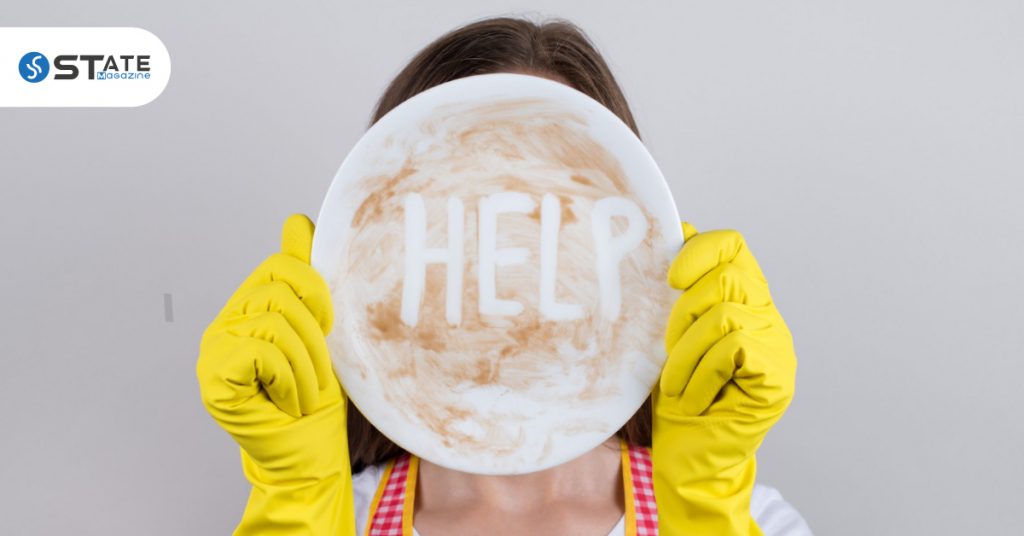
Sometimes, the dishes might not get cleaned properly due to hard water. This is because the normal soap or dishwashing liquid cannot get dissolved well in hard water like in normal water. So, the dishes and plates might be oily or have stain residues even after cleaning.
Solution: Hard Water Detergent
Hard water can reduce the effectiveness of normal detergents. Adding excess soap would reduce the effect but would not solve the problem completely. Use special hard water detergents to create proper suds from hard water. This would clean your utensils well and solve this problem.
Problem: Chalky Residue Inside Dishwasher
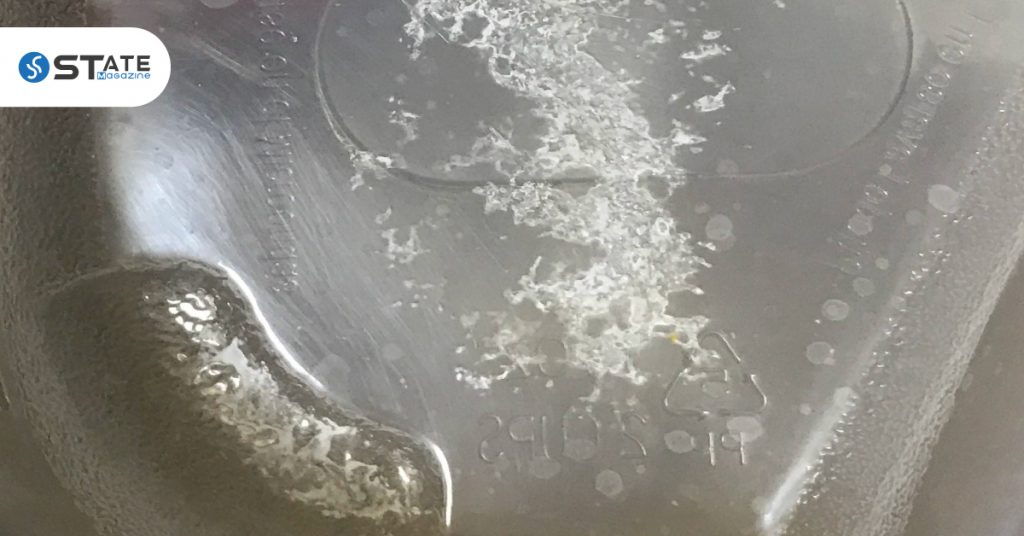
If the dishwasher is being damaged and coated with hard water residues, then that shows that it cannot clean either your plates or itself. The sale buildup might be more dangerous than you consider. If it keeps on clogging and building residues, then it would end up damaging the dishwasher parts. So it is highly recommended to take necessary action against this before it keeps growing.
Solution: Run Dishwasher Empty with Vinegar
You can clean hard water buildups in your dishwasher with this simple remedy. Vinegar is the hard water dishwasher cleaner that can bring down all residues with its acidity. However, it might not be able to clean the whole dishwasher completely. But you don’t need to scrub it to remove the remaining. You should place a bowl of vinegar in the top tray and run the dishwasher with hot water for an empty cycle. Hot water dissolves more minerals and would reduce the residues on your dishwasher. Lemon juice or baking soda can also be used as s powerful cleaner. You can even use a rinse-aid solution to remove coated and spotty residues and clean your dishes.
Problem: Dishes not Getting Cleaned
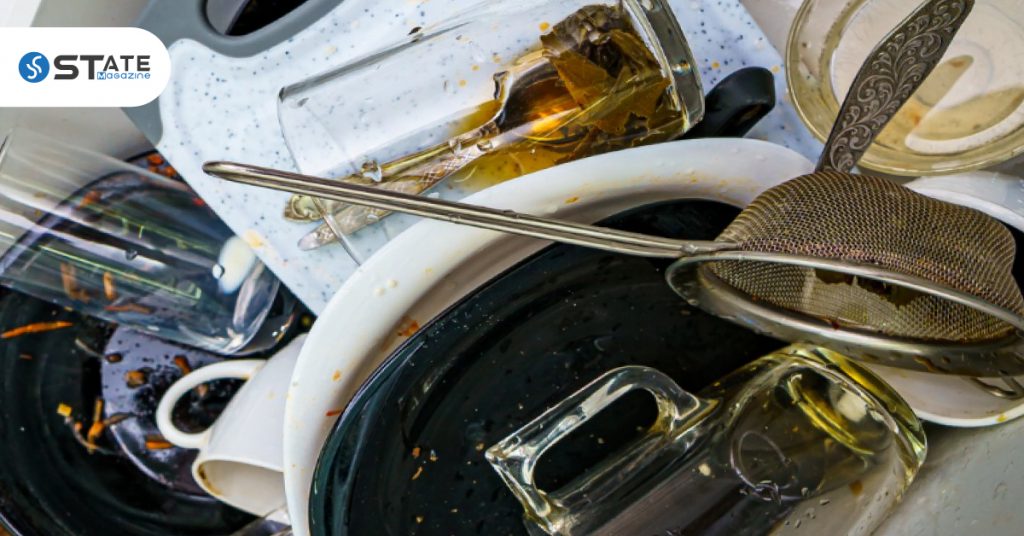
Sometimes, the reason behind your dishes coming out with food residues still on them might be a hard water dishwasher. Although this might not be a direct cause of hard water, it would still be a critical problem. The residues and clogging formed in the various components of the dishwasher make it difficult for the parts to function properly. It might even corrode certain parts of the dishwasher. So, it would prevent cleaning the plates and utensils in the cycle.
Solution: Wipe Sprayer Arms with Vinegar
Scale buildup might have clogged the small holes in the sprayer arms. This is a common problem with hard water, and there are similar issues with sprinklers or showerheads. The solution for this is using vinegar. Wipe the sprayer arms with a cloth soaked in white vinegar. Hold the arm so that it doesn’t shake and scrub the nozzle holes to remove the scale completely. You can use a paperclip or safety pin to poke the sprayer arm nozzles to remove any hard water formations in them. Then run the dishwasher empty with vinegar so that it would get any unseen and hard-to-reach buildups present inside.
Solution: Wipe Under Components with Vinegar
Scrub and wipe all components of the dishwasher that you can reach with your vinegar rag. This would reduce the damage caused by constant hard water. If you find components that appear cloudy or damaged by hard water, follow this method to clean them.
Solution: Look for Signs of Component Damage
Carefully inspect the dishwasher and check for signs of damage or blockage. If there is any scale formation, scrub it with vinegar. Most importantly, look for signs of rust that could mean a part of your dishwasher is about to break or could have already been broken. Check for these possibilities regularly if you have a hard water dishwasher.
Problem: Signs of Rust on Dishwasher Components
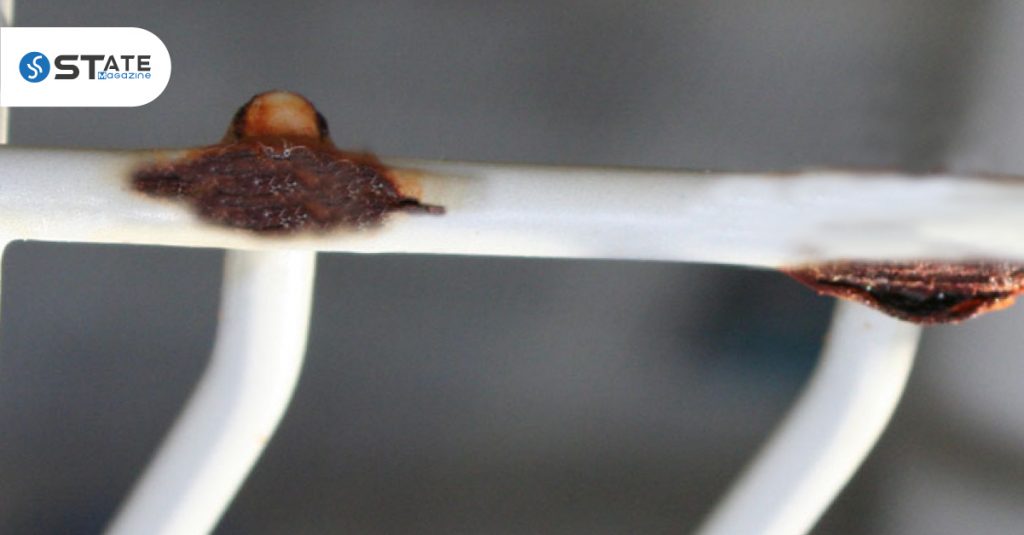
The mineral components in hard water are salts. Since salts activate rusting and corrosion of metal, they are very bad for dishwasher components. This would vary depending on the type of metal or alloy that the dishwasher is made up of. However, all metals would eventually start to rust or corrode when exposed to salty water for too long. So if you have corroded parts inside your dishwasher, then you would have to follow these solutions.
Solution: Replace Damaged Parts
Any dishwasher part that is rusting should be replaced because the rusting can lead to structural damage. If rusting hasn’t failed the components already, it would fail soon enough by slowly losing functionality over time. Order your replacement parts and decide whether you would handle the replacement on your own or get help from a technician for professional repairing.
Solution: Install a Water Softener
If your hard water dishwasher shows terrible signs of damage, then you need to consider installing a water softener. Localized or whole-home water softener units convert your hard water to soft mineral-free water by removing the minerals out of the water. This is also an ideal solution for other appliances such as washing machines and refrigerators. It would impose less damage to sinks, showers, and sprinklers. If you use a water softener, you can get clear and spotless surfaces on everything you clean.
Frequently Asked Questions
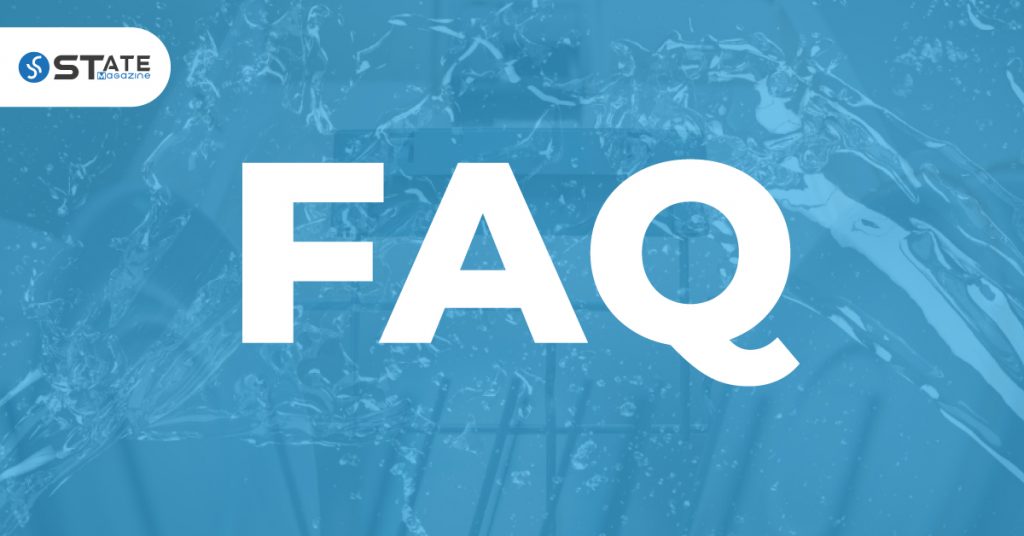
How do you soften water in a dishwasher?
There are several ways to soften hard water in your dishwasher. The best option is to purchase a dishwasher that can receive salt (softener). This is obtained by a container located inside the bottom part of the dishwasher. If your current dishwasher does not have this softening container, you can add a jet dry or rinse aid.
Is vinegar bad for the dishwasher?
Vinegar is used as a fabric softener and to get rid of stains and odors in the laundry. But as with dishwashers, this might damage the rubber seals and hoses to the point of causing leaks. So be careful not to use too much acidity in rubber components.
How do I stop watermarks on my dishes in the dishwasher?
Fill a dishwasher-safe bowl with vinegar and place it on the top rack in the dishwasher. Then, run the dishwasher as usual.
Is a water softener important for the dishwasher?
Most dishwashers have a water softener as soft water is needed to clean the dishes spotlessly. Hard water produces white calcium deposits, also known as limescale, on plates and utensils. Using dishwasher detergent with a water softener will prevent this and clean all dishes properly.
Does hard water leave a film?
Yes, hard water leaves behind a chalky white film on glass and dishes, which might be difficult to get rid of. An independent study has shown that homeowners with hard water tend to spend 50% more expenses on dishwashers and laundry detergent simply to deal with hard water residue.
Conclusion
Even though most dishwasher troubles are related to mechanical and electrical issues, hard water dishwashers can also be a common problem in certain regions. As hard water can do serious damage to your dishwasher, it is very important to get rid of this. If you have similar issues as mentioned in this, you might have to replace the components or install a water softener which might be beneficial for all other appliances in your home as well.
If you have other issues related to the function and operation of dishwashers, you can know why your Bosch Dishwasher won’t start and the reasons behind why your KitchenAid Dishwasher won’t drain properly. If you are looking forward to buying a new dishwasher and searching for good models, make sure to avoid these Worst Dishwasher Brands in the market.

